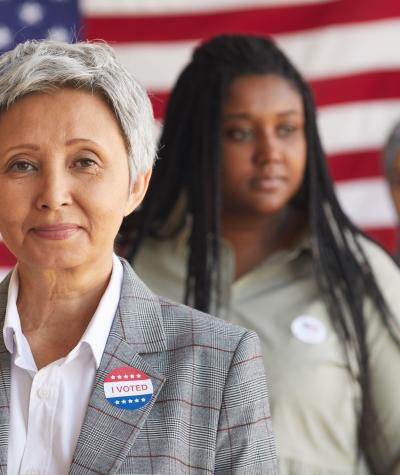One hundred and three years ago, after decades of activism, the Nineteenth Amendment granted some women in the United States the freedom to vote. This event marked an enormous step toward a more inclusive and representative democracy.
However, it took decades for all women to have the freedom to vote. While women—and especially women of color—still face unique barriers to the ballot box, hard-fought legislation like the Indian Citizenship Act in 1924 and the Voting Rights Act of 1965 made the freedom to vote functionally accessible for Indigenous women, Black women and other women of color.
We celebrate Women’s Equality Day—which commemorates the anniversary of the Nineteenth Amendment—as symbolic of the progress made while also recognizing that the freedom to vote for many women did not come until much later.
Our democracy is strongest when all women can participate in our political process and make their voices heard.
To strengthen our democracy, we must work to ensure that the freedom to vote is accessible for all women. We must uphold federal voting protections, like the VRA, while also protecting and expanding voting practices that help make our democracy more inclusive and accessible, like vote-by-mail and equitable access to in-person voting.
Damaging Supreme Court decisions, like Shelby County v. Holder, which gutted the critical preclearance process, continue to affect voting rights for millions of women in the U.S. While the federal VRA still empowers voters to take state and local governments to court to enforce their rights, it can be challenging for voters to prevail.
To reduce the burden on voters and communities of color to address these challenges, state lawmakers can pass their own state VRAs. State VRAs allow states to go above and beyond the floor set by the federal VRA to protect and serve their voters.
In doing so, states can lead the way toward a more inclusive and accountable government that is truly of, by and for the people it was created to serve. On Women’s Equality Day, and every day, we must reflect on what equality means and how we can achieve it to strengthen our democracy.

